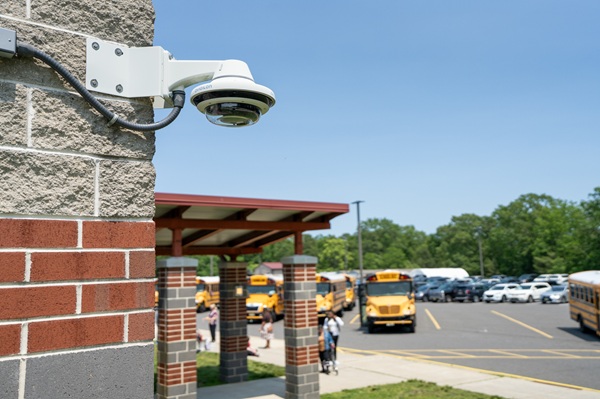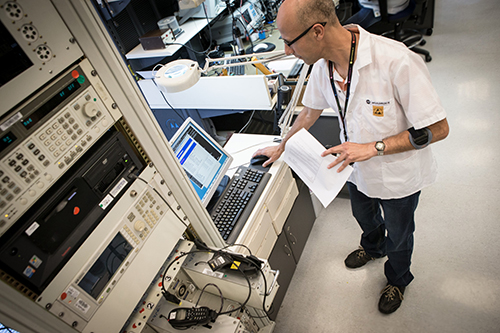School security officer duties have changed drastically over the years, with schools refocusing safety planning around more modern emergencies. From managing severe weather emergencies to preventing active assailants, students, parents, teachers, and staff may have increased fears or concerns heading into the next school year. It’s therefore important for administrators to communicate what their unique and comprehensive safety plan ahead of the next academic term.
A major component of this planning will be personnel, and when constructing a team to manage school safety, administrators should ideally hire a range of safety, security, and support professionals, which can include mental health and guidance counselors and nurses, social workers, IT officers, and school security officers. Each of these groups plays a different role in K-12 schools, and with proper training, there are several major responsibilities a security professional can take on.
If a school is looking to add an extra layer of safety, school security officers can take on several essential duties. The role differs from an School Resource Officer and are not trained in law enforcement. Often these professionals will be hired through or in collaboration with an outside agency, and are not armed. A school security officer reports to the principal or other administrators, and these individuals will be responsible for shaping the role.
The presence of School Resource Officers, law enforcement, and security officers in K-12 schools is not without controversy. School-based policing is considered one of the fastest growing sectors of law enforcement – advocates for SROs argue that these officers are best equipped to handle threats in schools, while critics argue that the presence of armed officers results in unintended consequences, such as increase in suspensions, expulsions, and arrests, especially for vulnerable students, and these disciplinary actions are proven to have a negative impact on student success.
However, SROs are not sworn police officers or security guards, and their responsibilities differ. Administrators should remain aware of how uniformed security on campus impacts the community, and it’s important to factor in these concerns when deciding what responsibilities security personnel will take on. Communicating to students, teachers, and all employees the role of a security guard in the school can be essential, whether their responsibilities will include managing traffic patterns, preventing intruders, or identifying theft or vandalism.
What Are Essential School Security Officer Duties?
School security officers typically prevent crime or theft, ensure campus policy is being followed, and protect the general welfare of students, faculty, and staff. One of the main and most critical responsibilities of a school security officer is to secure building access. These professionals typically monitoring ID tap-in access systems or metal-detectors, and help prevent intruders attempting to break-in to classrooms or other facilities on the grounds. They may also have the ability to lock and unlock certain buildings, for example, storage units for athletic gear.
Security detail will also likely be tasked with surveying security camera feeds and reporting any suspicious behavior during monitoring. Filling the appropriate paperwork with local law enforcement if theft, vandalism, or another crime occurs on campus is also another essential function of a professional security team. These individuals will be expected to be familiar with local law and legal procedures, so as to best respond to theft or property damage if it occurs.
These professionals might provide foot or vehicle patrols as part of monitoring student or visitor behavior, ensuring building security, investigating disturbances, helping keep order during events and other major activities. If a suspicious person is spotted on campus, security would generally be expected to intervene, identify the intruder, and ask for appropriate identification. Security may also help manage traffic patterns and parking regulations, and many times security teams will have the ability to issue tickets when a vehicle is parked in an area reserved for teachers or staff.
A security guard may also have assigned responsibilities during a fire drill or active shooter lockdown drill, making sure these procedures run smoothly and the community is aware of emergency practices. It may be helpful to include security teams in the development and implementation of a safety or security plan. This will ensure that these individuals understand the exact protocol in the instance of a medical emergency, property damage, car accidents, an active assailant, or any other situations which may arise.
During an emergency, a security officer can act as a first line of response. These professionals can make sure that local law enforcement, teachers, administration, and staff are informed as quickly as possible as a potential risk or developing emergency situation. During a major emergency, having additional defense can be valuable, to first action and speed up the response window for first responders.
How Can Technology Help Security Teams Do Their Jobs?
Technology can play a large role in how effectively school security officers are able to do their job. As the primary managers of physical security, these employees are likely to be responsible for managing a variety of technological tools, from security camera operations to building access tools. A proficiency in technology is a standard requirement for these positions, especially as high-tech tools become a more prevalent aspect of a campus safety plan.
A panic button app can be a useful tool for school security officers, allowing these individuals to clearly communicate an emergency to 9-1-1, administrators or teachers on-site, and to first responders. The app includes five emergency call buttons for security officials to choose from, including a fire, active shooter threat, or medical emergency. Security officers can also connect directly with local law enforcement in the wake of other concerns. In addition to calling 9-1-1, a preset notification will be sent to other security personnel, administrators, teachers, and staff regarding the nature of the emergency, increasing internal awareness as the situation develops.
By leveraging a panic button app, security teams in K-12 schools can more effectively act out their responsibilities. The app provides law enforcement teams with not only the nature of the emergency, but critical location data, which is essential for quick and effective response. School security officers are primarily on campus to provide an extra layer of safety and security for the community. By giving these workers the power to connect directly both with local safety teams and internal personnel, their presence on campus can be made even more effective.





Comments are closed here.